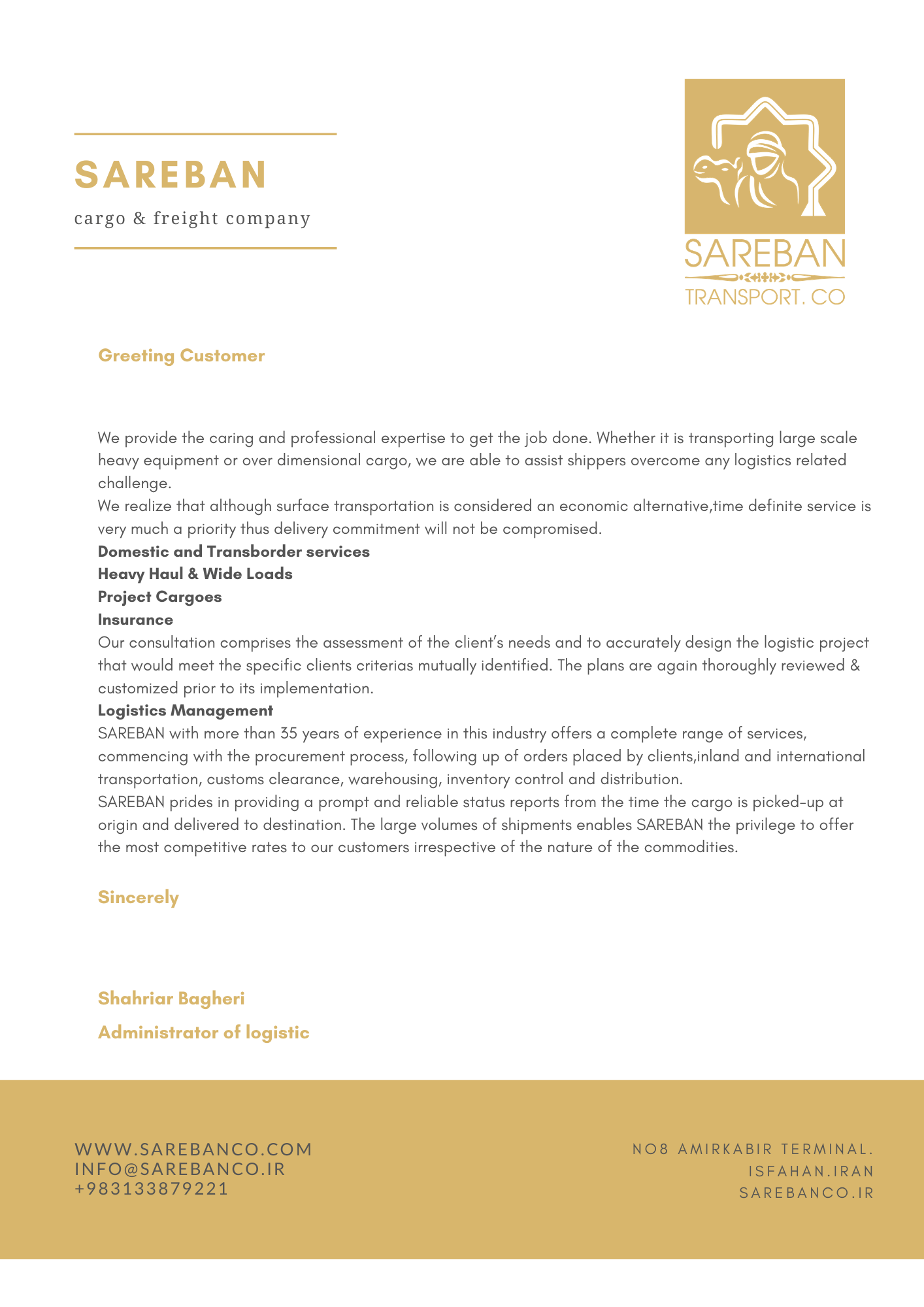In the dynamic landscape of the Middle East, road transportation stands as the cornerstone of logistical operations, with freight cargo playing a pivotal role in shaping and advancing the region’s trade ecosystem. The exponential growth of international trade and commerce has led to an increased reliance on an efficient and robust road transportation system, where freight cargo serves as the lifeblood of supply chains across diverse industries.
The Middle East’s strategic geographical location as a transit hub between Europe, Asia, and Africa has catapulted road transportation, especially the movement of freight cargo, into the forefront of economic growth. This region boasts an intricate web of road networks that seamlessly connect major cities, ports, and industrial zones, facilitating the movement of goods both domestically and internationally.
Freight cargo, comprising a myriad of commodities ranging from raw materials to finished products, traverses these road networks, facilitating trade and economic activities. The transportation of goods via trucks, trailers, and other heavy-duty vehicles has become the linchpin for the region’s export-import activities, contributing significantly to its economic prosperity.
Moreover, advancements in freight cargo handling techniques and technologies have revolutionized the efficiency and reliability of road transportation in the Middle East. Integration of cutting-edge logistics software, real-time tracking systems, and smart fleet management solutions have streamlined operations, minimized transit times, and enhanced overall supply chain management for various industries relying on road transportation.
However, despite these advancements, challenges persist in the realm of freight cargo in the Middle East. Infrastructure development, including the need for upgraded highways, bridges, and intermodal terminals, remains crucial for accommodating the growing demands of freight transportation. Ensuring seamless cross-border movement of goods, harmonizing regulatory frameworks, and overcoming bureaucratic hurdles pose significant challenges for freight cargo logistics in the region.
Furthermore, environmental sustainability is emerging as a critical concern. Although technological advancements have improved fuel efficiency and reduced emissions in freight vehicles, efforts towards greener practices in freight cargo handling and transportation are imperative to mitigate the environmental impact in the long term.
In conclusion, the Middle East’s road transportation, driven by the efficient movement of freight cargo, plays a pivotal role in the region’s economic development. Addressing infrastructure needs, embracing technological innovations, and fostering collaborative efforts among stakeholders will be instrumental in harnessing the full potential of freight cargo and furthering the advancement of road transportation in this dynamic region.
To overcome the challenges in the freight cargo sector, strategic investments in infrastructure development are imperative. Upgrading and expanding road networks, establishing efficient intermodal terminals, and implementing modern warehousing facilities are vital steps toward enhancing the efficiency and reliability of freight transportation.
Collaboration among governments, transportation authorities, and private sector stakeholders is crucial for harmonizing regulations and facilitating seamless cross-border movement of freight cargo. Efforts to standardize documentation procedures, streamline customs clearance processes, and simplify bureaucratic formalities will significantly expedite the flow of goods and reduce transit times.
Furthermore, the Middle East is witnessing a shift towards embracing digitalization and automation in freight cargo operations.
Integration of Artificial Intelligence (AI), Internet of Things (IoT), and blockchain technology is transforming supply chain management, ensuring transparency, traceability, and security in cargo handling and transportation.
Sustainable practices are also gaining traction in the freight cargo sector. Governments and businesses are increasingly investing in eco-friendly solutions, such as electrification of fleets, utilizing renewable energy sources, and implementing green logistics strategies to reduce the environmental footprint of freight transportation.
In conclusion, the advancement of road transportation in the Middle East hinges upon the seamless and efficient movement of freight cargo. Addressing infrastructure needs, fostering regulatory alignment, embracing technological innovations, and adopting sustainable practices are pivotal steps in unlocking the full potential of freight cargo for economic growth and regional development.



